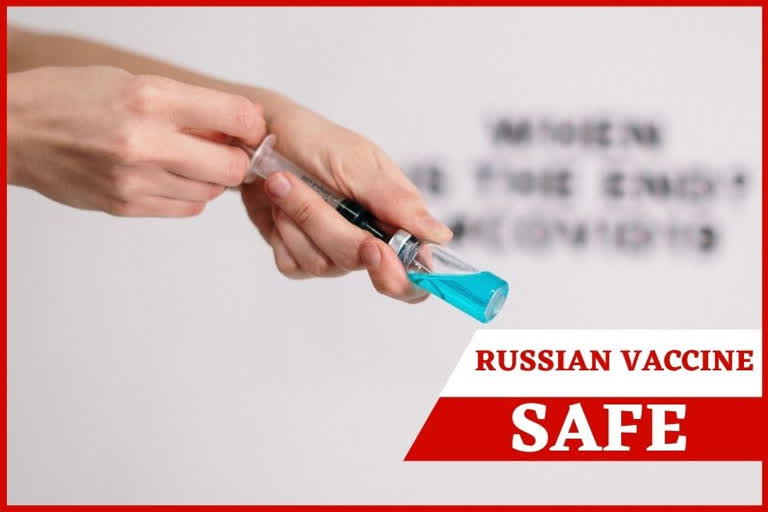Moscow: The COVID-19 vaccine, Sputnik V, approved by Russia last month, has been shown to elicit antibody response with no serious adverse events in small human trials, according to preliminary results published in The Lancet journal on Friday.
Results from early-phase non-randomised vaccine trials in a total of 76 people show that two formulations of the vaccine have a good safety profile detected over 42 days and induce antibody responses in all participants within 21 days.
Secondary outcomes from the trial suggest the vaccines also produce a T cell response within 28 days, the researchers said.
The findings are based on two small phase trials lasting 42 days one studying a frozen formulation of the vaccine, and another involving a lyophilised (freeze-dried) formulation of the vaccine, they said.
The frozen formulation is envisaged for large-scale use in existing global supply chains for vaccines, while the freeze-dried formulation was developed for hard-to-reach regions as it is more stable and can be stored at 2-8 degrees Celsius, the researchers said.
The two-part vaccine includes recombinant human adenovirus type 26 (rAd26-S) and recombinant human adenovirus type 5 (rAd5-S), which have been modified to express the SARS-CoV-2 spike protein.
The adenoviruses, which usually cause the common cold, are also weakened so that they cannot replicate in human cells and cannot cause disease, according to the researchers.
Read more:Russia approaches India for Sputnik V collaboration
These vaccines aim to stimulate both arms of the immune system antibody and T cell responses so they attack the virus when it is circulating in the body, and also attack cells infected by SARS-CoV-2.
"When adenovirus vaccines enter people's cells, they deliver the SARS-CoV-2 spike protein genetic code, which causes cells to produce the spike protein," said study lead author Denis Logunov, from Gamaleya National Research Centre for Epidemiology and Microbiology, Russia.
"This helps teach the immune system to recognise and attack the SARS-CoV-2 virus. To form a powerful immune response against SARS-CoV-2, it is important that a booster vaccination is provided," Logunov said.
However, Logunov said, booster vaccinations that use the same adenovirus vector might not produce an effective response.
He said this is because the immune system may recognise and attack the vector, adding this would block the vaccine from entering people's cells and teaching the body to recognise and attack SARS-CoV-2.
